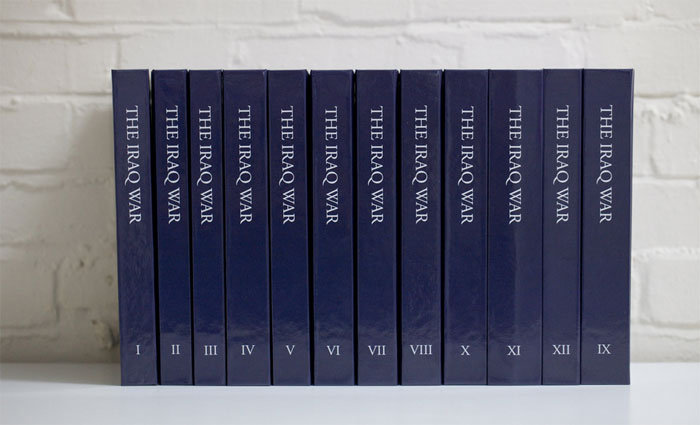September 23, 2010
The endless ephemera
by Melville House
What’s to be made? What should be saved? When’s all said and done, these are the only questions that define a culture.
 As was reported earlier this year, The Library of Congress has decided to archive every tweet ever tweeted. Recently, the British Library’s chief executive Dame Lynne Brindley pondered the historic value of archiving Stephen Fry‘s Twitter feed, whose followers are about to hit 1.8 million.
As was reported earlier this year, The Library of Congress has decided to archive every tweet ever tweeted. Recently, the British Library’s chief executive Dame Lynne Brindley pondered the historic value of archiving Stephen Fry‘s Twitter feed, whose followers are about to hit 1.8 million.
James Bridle recently created a bound encyclopedia of the complete history of the Iraq War as it was recorded on Wikipedia. Read more about it at BookTwo, where Bridle discusses the loss of the internet records of Geocities as akin to the burning of the Library of Alexandria.
The Boston Globe has a fascinating article about the fate of author’s personal libraries after they die. In particular, it discusses they odd story of David Markson‘s personal library being sold off at The Strand bookstore, and then reassembled by a community of Markson fans on Facebook.

From Markson's library
Markson died in June. His last novel, The Last Novel, has no plot or characters, and consists only of facts, anecdotes, and aphorisms about famous literary and intellectual figures. It could be read as a record of what felt most essential to save. However, there is also a relentless triviality to Markson’s “facts.” It is as if he had a deep passion for information that we are destined to forget:
Well over a century after Dostoievesky’s death in St. Petersburg, a great-grandson named Dmitri Dostoievesky still lived there–working as a tram driver.
The nephew of Aeschylus named Philocles, also a playwright, all of whose plays are lost. But was talented enough to gain the prize for tragedy in the year when Sophocles presented Oedipus Rex.
Borges vision of Paradise: a kind of Library.